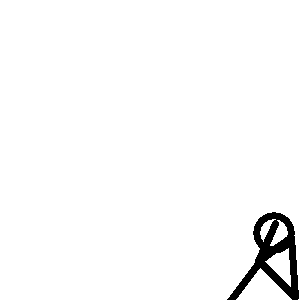
Used with permission
Creative Commons, Maria Dolores Torres
People hurt.
It's about the most basic of constants that define who we are. We start out hurting. Most of us end up hurting. It's unavoidable. It's not morally bad. It's just the unfortunate way it is.
Others hurt us intentionally. We hurt others back on purpose. We hurt and get hurt by accident. We hurt ourselves in a million different ways. We play the victim and we play the perpetrator. Some of us hide the hurt deep inside because we're ashamed, or we think it's our fault, or we're sure people will like us a whole lot less if they find out, or treat us like worthless bargain merchandise on the clearance rack. We hurt to impress and we hurt or get hurt to get attention and then we just hurt because it hurts so bad that we don't know how not to hurt.
We try painkillers (literal or metaphoric). This post isn't to say that there's not a right time for those when an exceptional medical situation requires, but they don't make the hurt stop. They make us think the hurt stopped. It's still there, whispering agony.
And when we don't identify, name, address, and rectify the hurts, we hold on to them and pass them on. We perpetuate them. If this wasn't sick already, it is now.
I'm no trained psychologist, mind you. Nor am I a diagnosed neurotic (yet, at least, but there's still plenty of time!). I'm just going off common sense here.
And sometimes we heal. Some of us figure out how to break this cycle.
The most lovely people I've ever met are the broken people who perform great acts of love, mercy, and kindness for others. It's not out of a sense of guilt. It's not codependence. It's legitimate, sincere, aching (hurting!) longing to see another be able to avoid some of the hurt. And these people are the most sincere. They know the blackness. They know the despair. They've been there, and they want to help someone else out of it.
Kindness spreads like hurt spreads. It's similarly powerful and quite nearly opposite. It's the antidote to the disease. A random and senseless act of kindness on our behalf releases and frees us to be kind to another.
But it comes at a cost: work. "Fixing is hard," says Hap in Mary DeMuth's novel Daisy Chain. "It takes more effort to fix than to make. A lot more." But when the effort is made, the result reshapes the universe and points it in a new direction, back more towards the guideline it was supposed to be following in the first place.
Here are a few ideas how any of us can be kind:
- Be kind, rewind
No, seriously. Don't do it because you get penalized if you don't. Do it because the fact that it takes you an extra few minutes saves someone else a few minutes. Do it because it's the right thing to do. You have no idea whose life you'll save tonight because someone else didn't get anonymously frustrated with you. Don't park in the nearest spot to the door. Don't expect the right-of-way. Don't take the last cookie. - Pay the toll for the person behind you
It's unexpected. You can try it with coffee, too. Or whatever. A corollary to this is leaving the toilet seat up, or down, or whatever it is he or she says irritates him or her when you don't. Or capping the toothpaste. But it's really great when it's anonymous and you have no idea who the recipient is.
Drive away fast. Don't break the law. Just don't let them make eye contact. This isn't about recognition. - Pay it forward
Yes, I just went all Haley Joel Osment on you. Deal. Once in a while, do something drastically and dramatically outrageous and absurd. This is the pinnacle of random and senseless. Will it come back to you? Wicca says yes. Ecclesiastes says maybe not, but do it anyway. The Gospels say it's a major investment in something beyond the "this." Take your pick.
Can we end hurt? Not today, but if we don't make the effort, then we're inadvertently perpetuating it.
I don't need that on my conscience.